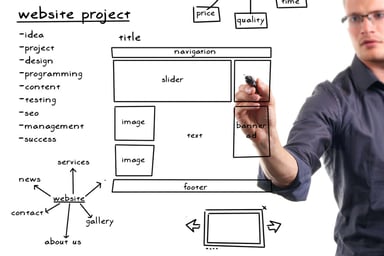How to Build a High-Performance Sales Team (Pt 1)
Hiring the Right People
It may sound like a no-brainer, but hiring the right people is critical to building a strong team. The best candidate is not necessarily the one you like the most or the one that has the most experience. There is a range of qualities that should be considered, and the best candidate should have the strongest profile based on those qualities.
Make a Hiring Criteria List
Who is the ideal candidate? It’s easy to break down the roll into required skills and attitude but those qualities alone don’t make a candidate a good match for your team.
The first thing you need to do is create a list of all of the traits you are looking for. You want to be sure that the applicant will fit into and add to your company culture. You want to be sure that they contribute to your team in a way has a positive effect on the team as a whole. Who is perfect for your role, at your company, with your current team culture in mind?
Then you’ll want to identify characteristics that would be a bad fit for your team. Build out that list and use the two as your pro/con parameters.
Keep in mind these lists will change based on company size, resources for training, etc. Just because someone is not a good fit for your organization does not mean they won't be a good fit elsewhere. The point is that you want to hire someone who will fit into your team and be happy doing it.
Using a precision hiring practice like this will improve your employee retention rate, employee satisfaction, and overall team culture. Making the wrong hiring decision can be a fatal mistake when building your sales team. The cost to recruit, train, and onboard a new employee can cost you hundreds of thousands of dollars while reducing productivity. Hiring and recruiting is the most critical function of a sales manager; nothing could be more important than ensuring your team has the right kind of people for your organization.
Keep Score
Take all emotion out of the equation; your criteria for hiring should be purely scientific. Create a table that lists each candidate with a weighted score (1-10) for the following criteria.
- Cultural fit
- Speaking ability
- Report building
- Prospecting Experience
- Industry Experience
- Interview Score
- Achiever Assessment
- Reference Check
- Background Check
Interview Properly
Use the right mix of technology and resources to help in your scientific approach. We use Hireology in our interview process because it allows us to score the interview in real-time while also performing a third-party reference check and background check. www.Hireology.com makes it easy to get much more accurate reference checks; you will get percentile scores for specifics sales attributes, which are invaluable. Additionally, Hireology will keep the candidate informed throughout the interview process, making it easier for you to manage the process and keep your candidates engaged.
Measure EQ, not IQ
Utilize the Achiever assessment from Saterfiel. They measure EQ traits that show up as skills a high achiever will possess. “EQ” is emotional intelligence, proven to be a much better indicator of success in the workplace than IQ traits. The assessment will measure traits such as rigid vs. flexible, and you should reference this data against your profile of an ideal candidate. If they show up on the assessment as rigid and your sales process could often change, your position probably isn’t the best fit for this candidate.
Assess for Skill
Consider different assessment types for different roles that you are hiring for. If you are hiring for a BDR or SDR, consider a test highlighting their fluency with Linkedin or Zoominfo prospecting. If you are hiring for a sales engineer, consider having them walk you through a Zoom conference on a known piece of software like Excel. Testing like this may seem like an extra step, and it is, but I want you to envision someone on your team that does not have the direct skills needed to fulfill their role and how much it will cost you to make a change after the fact.
See Also: Tips on How to be Helpful, Listen and Ask the Right Questions
Notes
Does this take the human element out of the hiring process? Not at all, you prevent hiring someone for a position in which they can’t perform at the level of expectation. Nothing is more devastating than hiring the wrong person and then telling them they are not cutting it. By implementing a process like this, you save yourself and the candidate countless hours of frustration and negative energy. By hiring correctly, you allow that prospect to find the right fit at a good company more in line with their qualifications, EQ, and skills.




